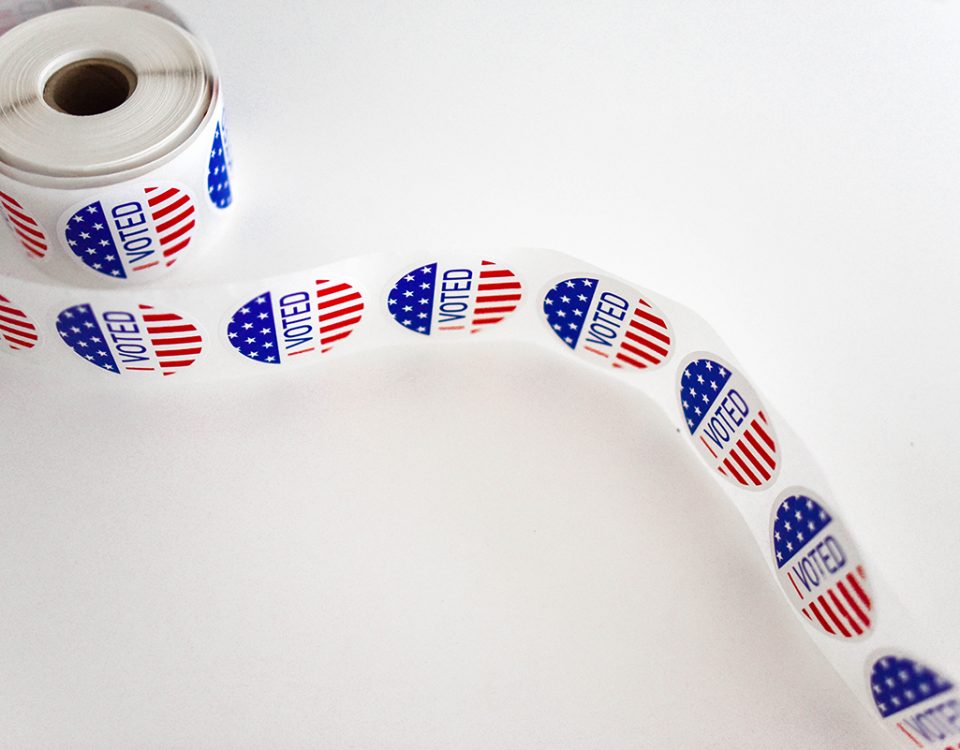
Horrible Bosses (MFT Version)
December 7, 2016
Applying for a Job as a Prelicensed Therapist: How to Stand Out
June 28, 2017Last month, my husband and I attended the LB-SB CAMFT Job Fair in order to represent Prelicensed and sponsor the professional headshots that were offered to attendees. We thoroughly enjoyed our time there (meeting dozens of Prelicensed followers in person was the best part!), and now that we’ve had an opportunity to reflect on our experiences, we’d like to share some observations that we believe will benefit readers who plan to attend MFT job fairs and other recruiting/hiring events.
The different types of behaviors and mannerisms that attendees displayed over the course of the job fair were what stood out to us the most. Some traits clearly aided attendees in their search for job opportunities, while others likely hindered their progress. As you read this blog article, we encourage you to think about what kind of attendee(s) you might identify with. Consider how you can enhance your strengths and avoid common pitfalls while interacting with employers at future job fairs.
The “Lurker”
We wish we could phrase this in a nicer way, but frankly, this is the most accurate descriptor we could come up with. We didn’t observe many “lurkers” during the job fair, but there were a few. Typical “lurkers” consisted of attendees who entered the event, grabbed something to eat/drink, and minimized their interactions with employers. Which is unfortunate, because one of the keys to success at a job fair is meeting employers and getting your resume into their hands!
There are many legitimate reasons for why an MFT registered intern, trainee, or student might find themselves in this category. Attending a job fair can be nerve-wrecking even under the best of circumstances. Those who struggle with certain mental health disorders may find it difficult to jump through the hoops of a job fair. Introverts may not feel comfortable approaching employers out of the blue and carrying on a conversation. Sometimes, attendees simply don’t know where to start!
Fortunately, “lurkers” already possess a key strength, which will benefit them as both an attendee and future employee: the power of observation. If “lurkers” can channel their energy toward actively watching and listening to how employers interact with other attendees, then they can use this information to formulate a strategy for approaching employers. It’s okay to sit back and observe, but don’t observe for too long. Otherwise, you’ll miss out on your chance to make a good first impression with employers!
The “Go-Getter”
At a glance, identifying with the “go-getter” may seem like the best-case scenario. After all, isn’t the point of attending a job fair to talk yourself up to employers, convincing them to hold on to your resume and give you a call after the event? We observed quite a few “go-getters” during the job fair, and while most appeared to be successful in their approach, a few went just a little too far.
Don’t get us wrong – being a “go-getter” can be a huge advantage as an MFT registered intern, trainee, or student! The “go-getter” may receive promotions more quickly than their colleagues, form larger networks than their classmates, and accumulate hours at a faster rate than their peers. However, overly aggressive attendees can frustrate employers who are not in a rush to hire someone on the spot. “Go-getters” who spend more time talking about their strengths vs. learning about the employer can come across as arrogant. Finally, “go-getters” who don’t allow other attendees an opportunity to speak with the employer can leave a negative impression on the very people they want to impress.
“Go-getters” already know how to utilize their strengths, but they need to make sure they avoid the pitfalls mentioned above. Take note of the “lurker” who sits back and observes their surroundings before rushing in. Pay attention to body language when interacting with employers. Do they seem interested in continuing a conversation with you, or are they eyeing another attendee who has been patiently waiting behind you for several minutes? Be courteous, ask if you can send a follow-up e-mail vs. monopolizing an employer’s time, and you’ll be an even stronger candidate when they’re ready to hire!
The “Hands Full”
The “hands full” started off with good intentions. These attendees were eager to gather as much information about employers as possible, so they accepted whatever brochures and flyers they could get their hands on (not to mention all the free goodies being passed out!). Unfortunately, by the time they arrived at the Prelicensed table, they couldn’t manage to shake our hands or pick up anything we had to offer at our table. The only way to do either of these things was to set down everything they were holding… and this was generally a slow, messy process.
One of the perks of attending a job fair is accessing all kinds of great things that you can take home with you! MFT registered interns, trainees, and students are wise to absorb information at these types of events. Business cards are especially important to collect at a job fair, as this will give you someone to follow up with after the event has ended. However, if you don’t have a plan in place, then it’s easy to get slowed down by the sheer amount of information (and goodies) you’re trying to hold on to.
Most job fairs have tote bags for attendees, so pick one up before you start to grab things left and right. That way, you’ll be able to stay “hands free” throughout the event. Also, keep in mind how many personal items you will be bringing to the job fair. Instead of carrying a portfolio or briefcase in one hand, consider swapping it out for a messenger bag. Large, bulky purses can be exchanged for small, slim purses that won’t get in the way. If you’re going to take a food or water break, then consider finishing what’s on your plate or in your cup before returning to the main area, as this will ensure one or both of your hands remain free!
The “Unprepared”
The “unprepared” came in many forms. Some attendees did not look prepared for the job fair, as evidenced by their wrinkled business casual attire. In other cases, attendees did not smell prepared, due to their breath or body odor (it’s one reason why our free goodies were mint tins with the Prelicensed logo!). A few attendees did not even have resumes to give to employers!
We remember what it was like to be in school, balancing classes with real-life demands. We know that MFT registered interns, trainees, and students are often crunched for time. However, when it comes to job fairs and similar events, you’ll want to plan ahead. Small mistakes can have a negative impact on your ability to make a good first impression with employers. Luckily, small changes can also have a positive impact with those same employers.
We recommend that you start planning for the job fair a few days ahead of time. What outfit will you wear, and does it look clean? Once you’ve selected your outfit, set it aside so you can save time when you’re getting ready the morning of the job fair. Is your resume up-to-date (accurately reflecting your academic, clinical, and other experiences), and does it contain the best e-mail address and phone number for an employer to reach you at? Make sure you have dozens of resumes available to distribute to employers at the job fair. A little bit of time and effort now will go a long way later on!
What other thoughts do you have about being successful at job fairs? Leave a comment below!





